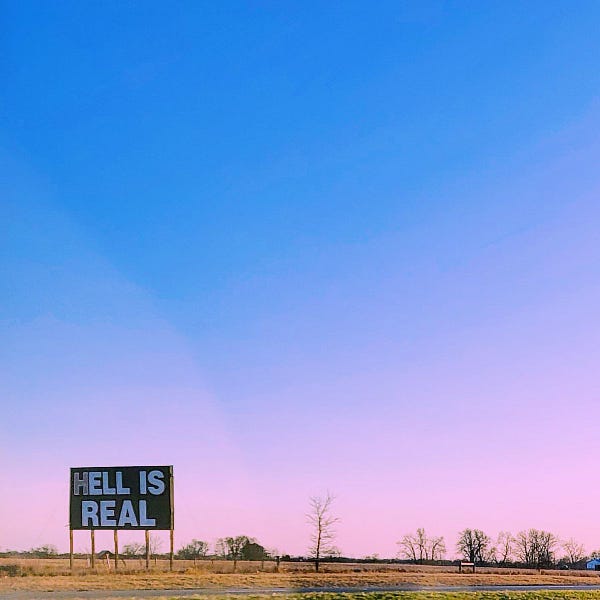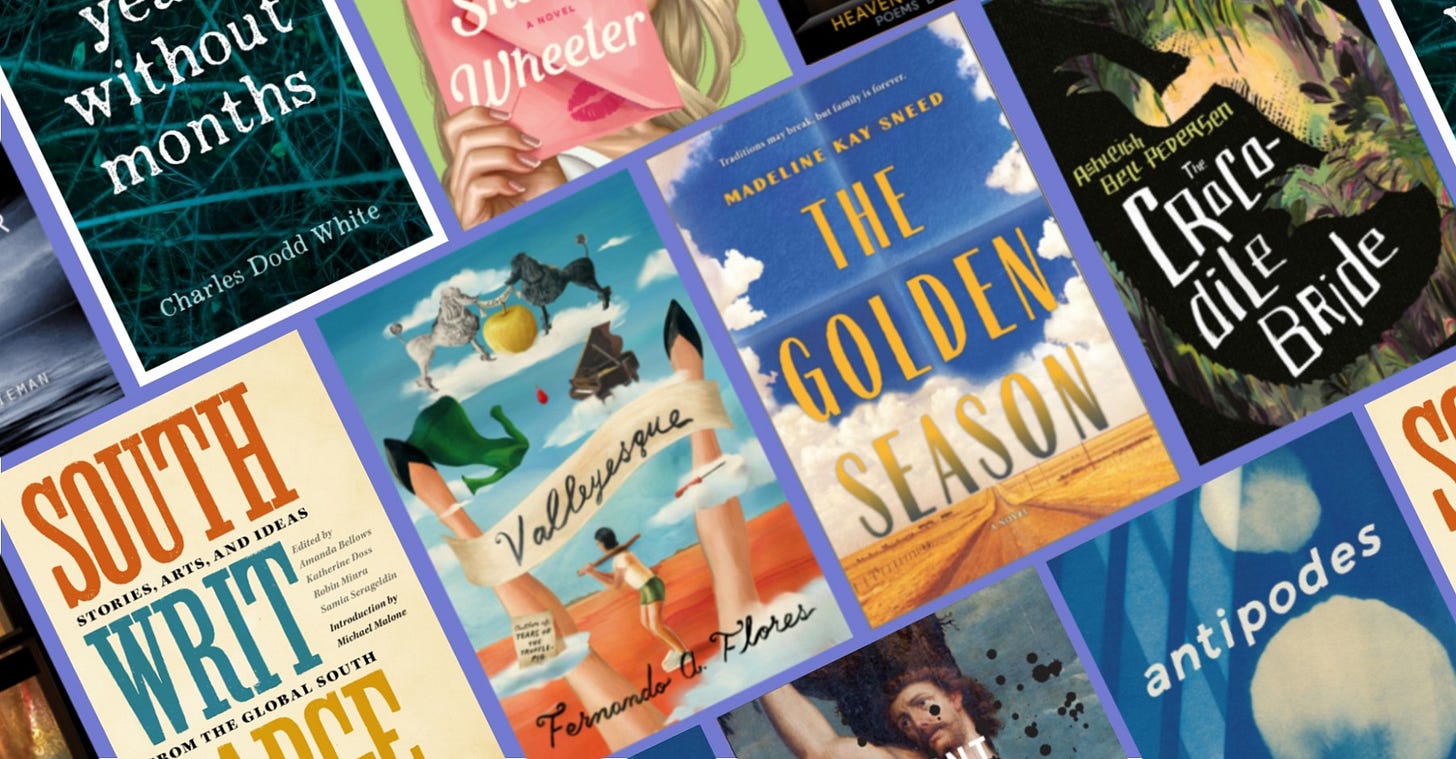Hi Folks,
Following our announcement earlier this week, there are a few upcoming changes to the Resource Roundup schedule. Resource Roundups will continue to go out on Fridays; the last Friday of the month, all subscribers will receive the RR in your inbox. If you are a paying subscriber— all subscriptions help us pay our contributors and guests on the podcast— you will receive the RR weekly on Fridays. Monthly RRs (that go to all subscribers) will be the long edition with an extended list of resources to check out that month.
If you would like to become a paying subscriber, you can do so below. Paying subscribers receive weekly Resource Roundups, podcast transcripts, Good Folk stickers, and our eternal love and support <3
OK, announcements out of the way, let’s get into it.
A lot has happened this week that I am still finding the words to talk about. I’ve spent the last few days processing, trying to stay off social media to protect my own mental wellbeing, and looking for the right words to say. But what do you say in a time like this? Words, to me, feel hollow right now. As someone who usually knows what to say, right now I know that anything I write would feel untrue. We’ll be getting more into that feeling in Monday’s newsletter, but for today, I just want to share a few additional reads, funds, and resources for gun violence.
This is a tough read, but I think it’s an important one. The New York Times is sharing information about each victim in the Uvalde shooting, two teachers and nineteen students. As a teacher, this week has felt extra difficult, and I just hold on to this: on Tuesday morning, these children were alive in the world. On Tuesday afternoon, they were not. This was preventable. The conversation does not need to be complicated than that.
Also in The New York Times is this op-ed from Roxane Gay about civility and the current political moment. I think about this often in empathy and storytelling work, and I absolutely agree. We often talk of empathy as a civil process, but part of the actual work of empathy is building anger as we come to realizations about the world around us. Of course we will be angry when we start paying attention to the injustice around us. That is to be expected. And that is where storytelling comes in, giving us a place to process that anger and write new narratives about what the future of this country will look like. Because it cannot go on this way. And the more we speak up about our stories, the more we raise that awareness and generate that anger that is crucial to this period of change.
“The United States has become ungovernable not because of political differences or protest or a lack of civility but because this is a country unwilling to protect and care for its citizens — its women, its racial minorities and especially its children.
When politicians talk about civility and public discourse, what they’re really saying is that they would prefer for people to remain silent in the face of injustice. They want marginalized people to accept that the conditions of oppression are unalterable facts of life. They want to luxuriate in the power they hold, where they never have to compromise, never have to confront their consciences or lack thereof, never have to face the consequences of their inaction.”
Here is where you can donate to the individual funds for families of the Uvalde victims.
In this collective moment of sadness, I’ve found some solace in Scalawag’s series on grief. This is a great piece from Da’Shaun Harrison about grief, trauma, race, and healing.
“there is no one-size-fits-all coping mechanism for grief or trauma. what phrase, song, prayer or ritual may work for one person may not work for another. the phrase that many lean into in times of deep sorrow that absolutely does not provide me with any comfort is "healing isn't linear." on the surface, i guess that's true. healing is erratic, indiscriminate, chaotic, and arbitrary. it knows no bounds and follows no rules. and in its wake, i've found that it often puts your heart up as collateral—leaving one unwilling to feel as deeply as they once did, or love as earnestly as they once did, or exist as vulnerably as they once did. at least, that's true for me. “
I’ve shared this with my own personal networks and on social media, but Scalawag has a list of where and how you can support abortion providers in the South. It’s important to recognize the ways in which any changes to Roe v. Wade will deeply affect folks in both rural and Southern places, and this is a particular moment to give extra support to this region.
On that topic, journalist K Webb put out a great Twitter thread about abortion in Alabama, which she has been covering for some time.


Remember this as eyes turn to Texas, and the other Southern states with loose gun laws. Remember this as we come up on Pride Month. Remember this. The only way we will move forward is by rewriting the stories we have been telling ourselves.

It came out a few weeks ago, but I have new work in Longreads covering the coastal climate crisis.
When I think of home, it always looks something like this. And nowhere else fuels my work more.
North Carolina introduced a “Don’t Say Gay” bill this week. It’s unlikely it will be passed, but I am still livid. My students deserve better. Queer educators deserve better. This country can do better.
If this makes you feel the same way it makes me feel, I recommend this newsletter post from 100 Days in Appalachia, which touches on the exhaustion that comes with not walking out on the places you love. We don’t talk about that feeling enough in this line of work. But I too am definitely feeling that exhaustion right now.
“I don’t care if Marjorie Taylor Greene or Ron DeSantis or anyone else likes me, likes gay marriage, likes transgender people, likes our families. We exist, so they’re just going to have to suck it up. We exist and we live in South Carolina. We exist and we live in Georgia. And yes, we exist and we live in Florida. We exist. We live. We thrive – both despite and to spite them.
And yes, we live in Appalachia. We always have, and we always will. We raise our children here. We pay taxes here. We call these places home – sometimes proudly, more often painfully, but always with the resilience and tenacity it takes to live a life as someone else’s political football, the perennial black sheep not to be spoken of in polite company.
That is a price that many of us are willing to pay because we love these places. This land is in our blood. These hills call us home.”
If the world feels too much for you and you just want to disappear from it for a bit, the Southern Review of Books is rounding up the best new Southern books for the month of May. I’m especially excited about Ashleigh Bell-Pedersen’s The Crocodile Bride and Madeline Kay Sneed’s The Golden Season.
And if that isn’t enough books for you, Bitter Southerner has their Summer Reading Roundup. Get into it.
Ethel Cain’s new album is just so good. Some of the best narrative storytelling I have ever seen in music ever. I cannot stop listening to this song.
Lastly, a reminder from the always amazing Louise Erdrich. Feel it. Sit with it. And continue to love.










<3